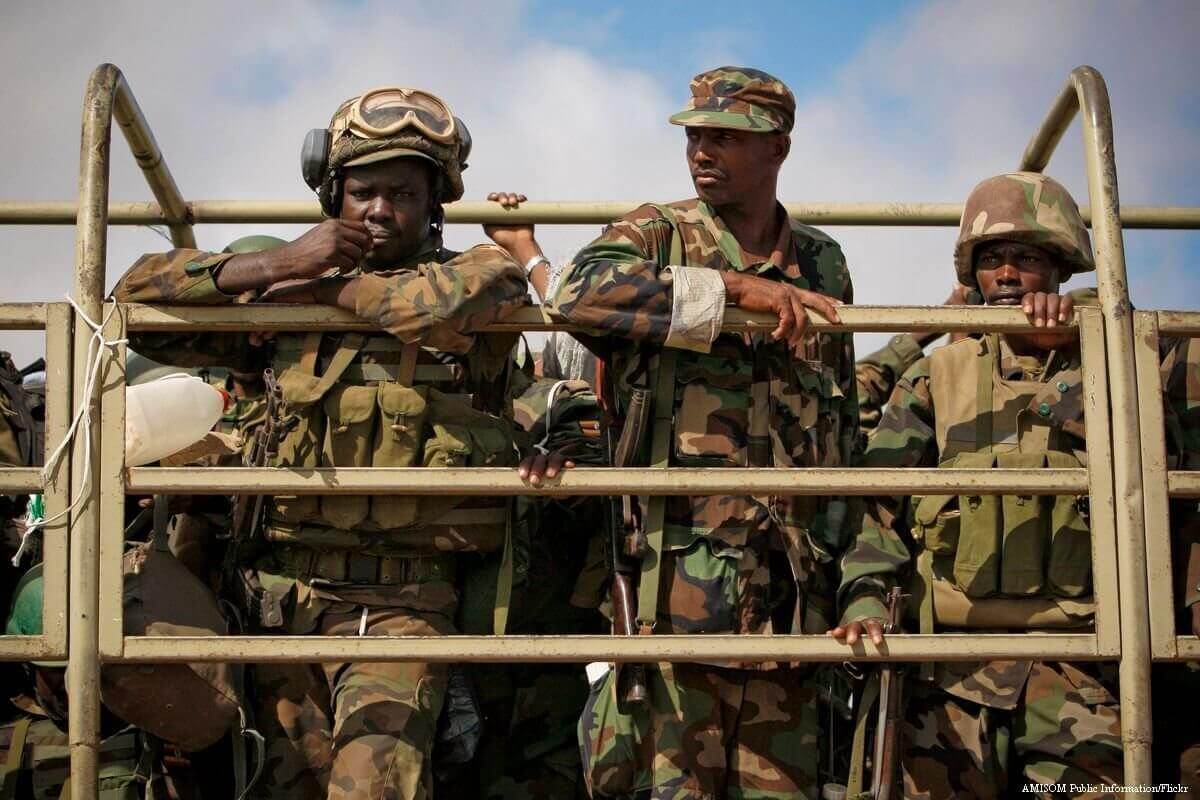Last Thursday, the African Union Mission in Somalia (AMISOM) extended its mandate in the country to March 14, after it was due to expire at the end of February. The decision was taken in light of the current political crisis in the country, with the opposition at loggerheads with Prime Minister Hussein Roble and President Mohamed Abdullahi Farmaajo over the government’s decision to delay presidential elections, which were originally scheduled for February 8.
Resolution 2563/2021 passed by the 15-member United Nations Security Council released a statement saying, “The Council authorises AMISOM to take all necessary measures in full compliance with participating states’ obligations under international law, including international humanitarian law and international human rights law, and in full respect of the sovereignty, territorial integrity, political independence and unity of Somalia, to carry out its mandate.”
Also on Thursday, PM Roble was joined by Mogadishu Mayor Omar Filish, Internal Security Minister Hundubey Jum’ale, and Deputy Information Minister Abdulrahman Al-Adala ina meeting with the opposition, who was represented by the Council of Presidential Candidates, which includes Dahir Mohamoud Ghelle, Abdirahman Andishakur Warsame, and Mustaf Ali Duhulow.
The central government has been in intense months-long negotiations with the five federal states over the electoral process. In September, President Farmaajo made an agreement with regional leaders to allow indirect parliamentary elections in late 2021 and a presidential election in February 2021. However, the deal ultimately fell through.
The government is aiming to institute a ‘one person, one vote’ ballot in order to replace a convoluted, multi-step system in which the country’s clan leaders appoint special delegates to choose lawmakers for the Lower House of parliament, and the country’s five federal states elect the members of the Upper House of parliament. Both houses then elect a president, who then selects a prime minister, who then appoints a cabinet.
Although the central government has fallen well short of its goal for a ‘one person, one vote’ system, it did reach an agreement with the federal states in September that made significant changes to the system. Under the proposal, the central government and regional administrations would appoint electoral commissions at the federal and regional level. Next, electoral colleges of 101 delegates from each of the five states would elect the Lower House MPs. These delegates would be appointed through rigorous consultations with the public, clan leaders, and regional officials. Meanwhile, local parliaments in these states would appoint the 54 senators for the Upper House. However, the deal broke apart after the state leaders of Jubaland and Puntland alleged that President Farmaajo had “packed the election boards with his allies”.
Although Farmaajo has denied these claims, his legitimacy has been somewhat eroded by the fact that his constitutionally mandated four-year term was meant to have ended on February 8. In fact, the opposition has said that it no longer recognises him as the legitimate leader of the country.
AMISOM, which was formed in 2007, worries that this enduring political instability could leave a vacuum for terrorist groups like Al-Shabab to exploit. During the course of its mission, AMISOM has led capacity-building programmes for the Somali National Army and the Somali Police Forces. It is comprised of roughly 20,000 troops that mainly originate from Kenya, Ethiopia, Uganda, Burundi, Djibouti, Zambia, Ghana, Nigeria, and Sierra Leone. President Farmaajo has previously spoken about the crucial “capacity-building support” provided by foreign troops and has thus likely welcomed the extension of AMISOM’s mandate, which could be extended even further depending on how the situation unfolds over the next few weeks.
Security Council Extends AMISOM’s Mandate in Somalia Amid Continued Political Instability
The opposition remains at loggerheads with Prime Minister Hussein Roble and President Mohamed Abdullahi Farmaajo over the government’s decision to delay presidential elections.
March 3, 2021

IMAGE SOURCE: AMISOM PUBLIC INFORMATION / FLICKRThe central government has been in intense months-long negotiations with the five federal states over the electoral process.
